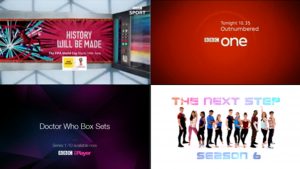
After more than 40 years of operation, DTVE is closing its doors and our website will no longer be updated daily. Thank you for all of your support.
BBC R&D to showcase advances in dynamic content substitution
The BBC’s research and development arm is due to showcase its latest work in personalising TV broadcasts by mixing internet-delivered and broadcast video at IBC this year.
 The BBC is investigating non-commercial use cases for what it calls ‘dynamic content substitution,’ as opposed to the dynamic ad substitution that is being explored by some commercial broadcasters and industry groups.
The BBC is investigating non-commercial use cases for what it calls ‘dynamic content substitution,’ as opposed to the dynamic ad substitution that is being explored by some commercial broadcasters and industry groups.
“This is all about the ability to personalise our broadcast services so that what you see better matches your tastes or is relevant to your local area,” said Matt Hammond, lead R&D engineer at the BBC in a company blog post.
“There is an obvious overlap with the underlying technology that enables dynamic ad substitution, so we are working to ensure that these use cases are not forgotten.”
At IBC, BBC R&D will run content substitution demonstrations on devices supporting the HbbTV 2 standard.
“The Freeview Play platform in the UK is pioneering the deployment of HbbTV 2 capable TVs,” said Hammond. “It currently plans to adopt the functionality needed to enable content substitution in TVs to support both commercial and non-commercial uses.”
Separately BBC R&D will present a study at IBC comparing video compression performance by the HEVC, AV1 and the in-development VVC coding standards.
“VVC is expected to further reduce the bit rates needed for compressing video content at the highest qualities,” said BBC R&D in a different blog post.
VVC development started in March this year when the ISO/IEC Moving Picture Expert Group (MPEG) and the ITU-T Video Coding Expert Group (VCEG) partnered to form the Joint Video Experts Team (JVET).
BBC R&D said it expects the VVC standard to be able to deliver substantial coding advantages over available solutions, proving that higher compression efficiency can be achieved.

